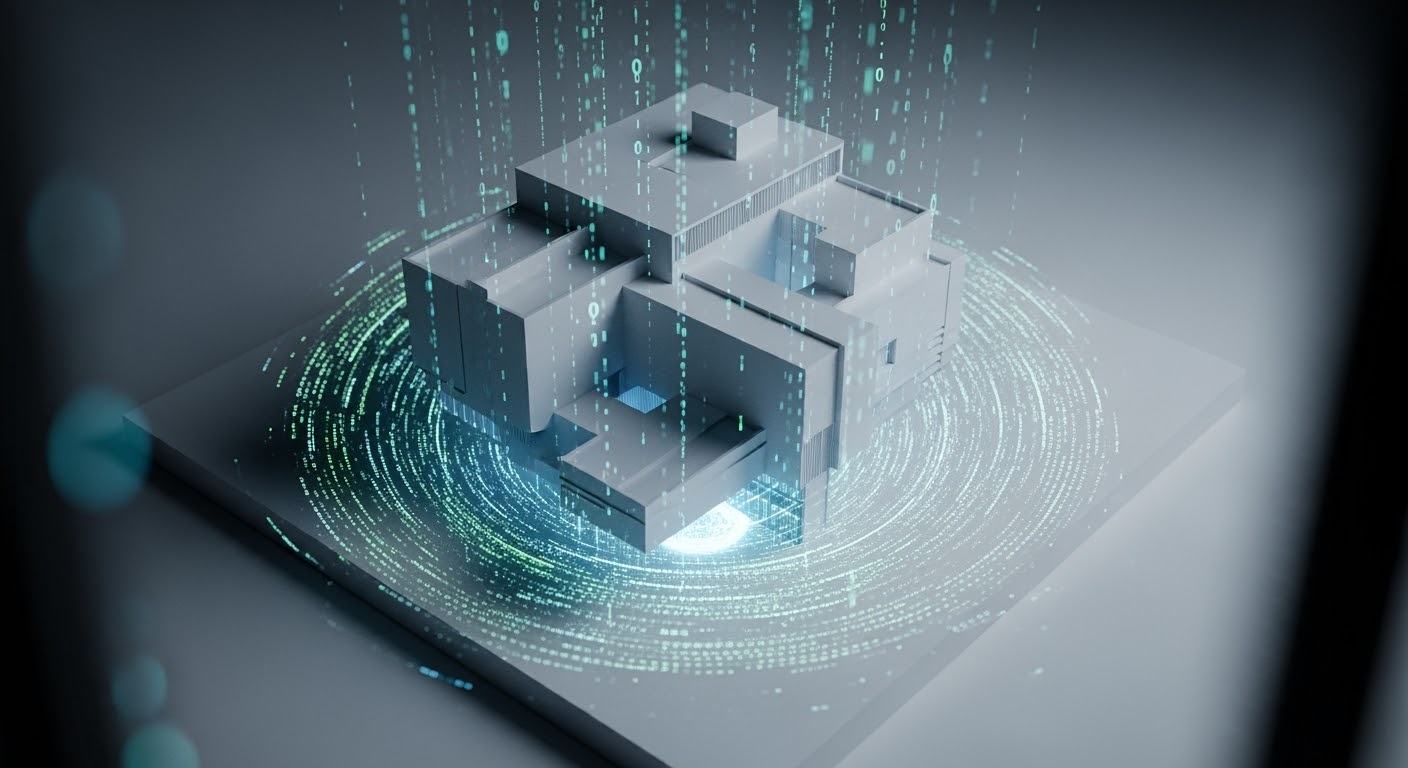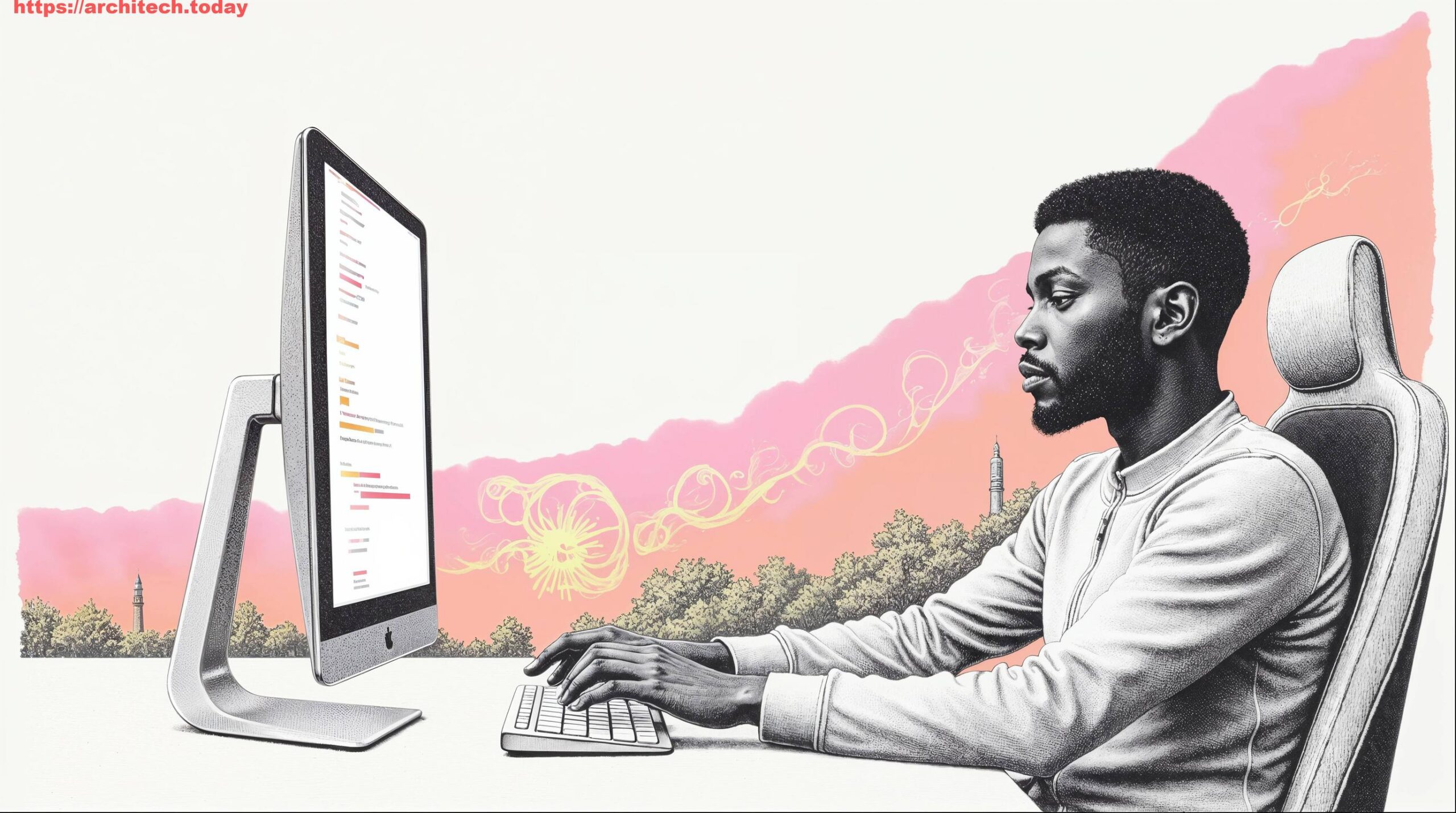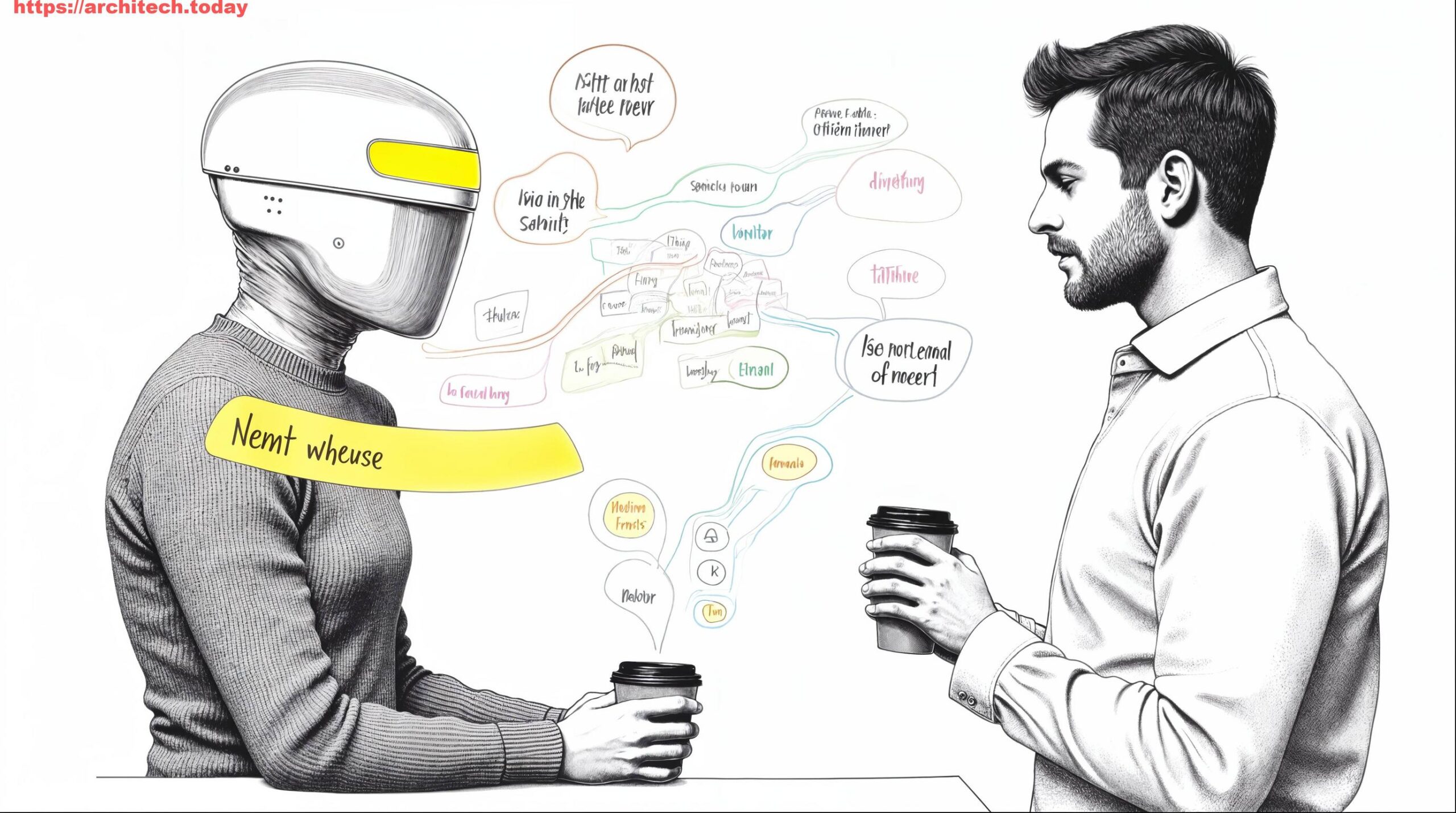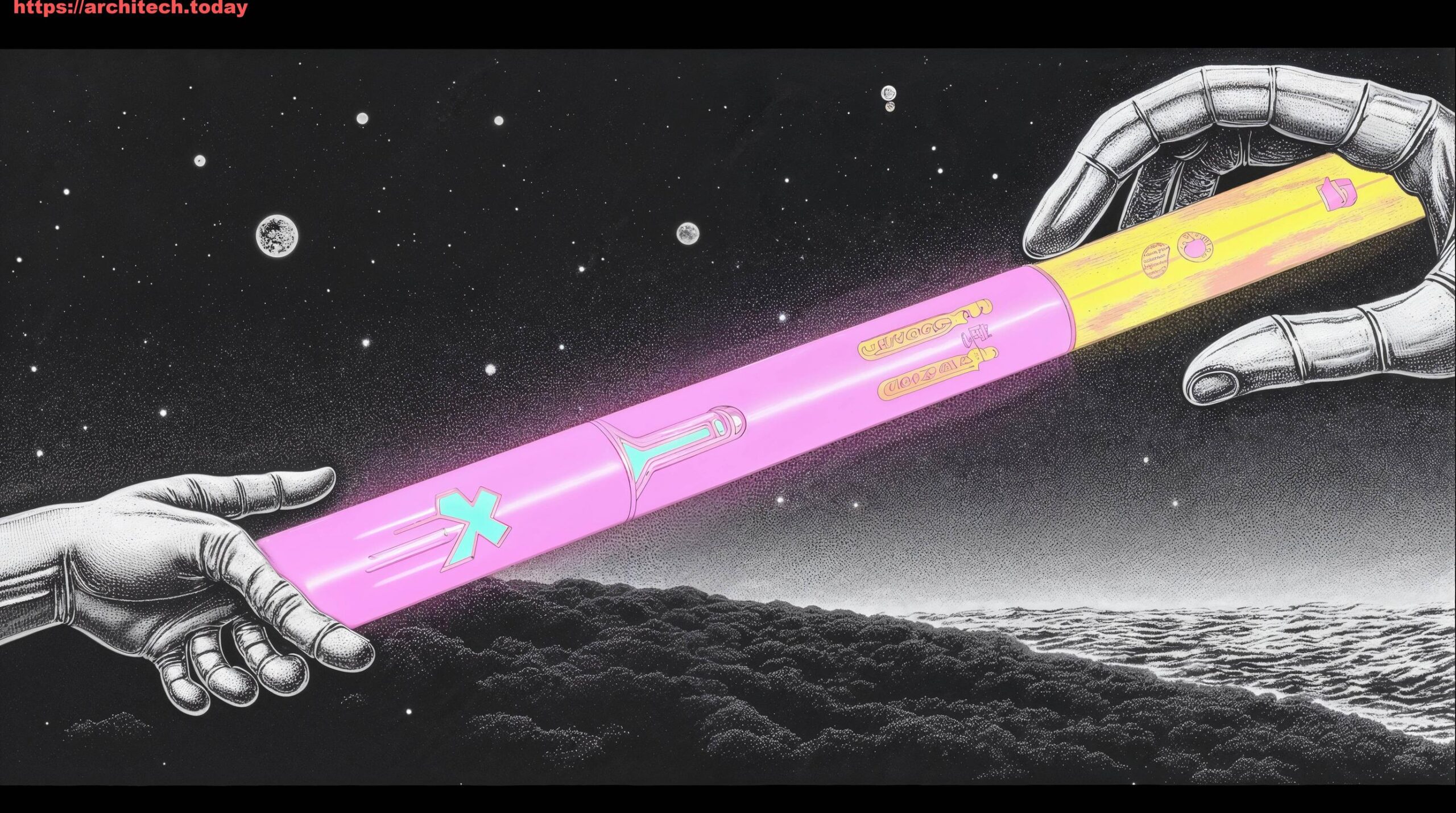The AI-Powered PM: How Project Management Will Evolve, Not Disappear in the Age of Automation
Imagine it’s 2025, and your AI assistant has already outlined your project plan over coffee, complete with risk assessments, resource allocation, and even initial stakeholder communication drafts. Sound like science fiction? Not entirely. The rapid advancements in artificial intelligence have many project managers and business leaders pondering a fundamental question: In 2030, is your project manager a human, an AI, or a bit of both? This isn’t just a thought experiment; it’s a pressing concern for a profession historically rooted in human interaction and oversight.
The anxieties are palpable. Will AI eventually automate so much of the project management role that it changes drastically, or even disappears entirely? This thought-provoking piece aims to cut through the noise, offering a balanced, forward-looking perspective on the undeniable transformation ahead. We’ll delve into how AI is already reshaping daily PM tasks, explore the ambitious frontiers of what AI might achieve in the future, and, crucially, illuminate the uniquely human skills that technology simply cannot replicate. Our goal is to provide reassurance through insight: yes, things will change; no, you—the human—aren’t going away. Instead, you’re about to become even more valuable, evolving into a strategic orchestrator and chief motivator in an increasingly AI-augmented landscape. Prepare to discover how to future-proof your career and thrive alongside your new silicon colleagues.
The AI Ascent: What AI Is Already Doing in Project Management Today
For those still viewing AI as a futuristic concept, it’s time for a reality check. AI isn’t just knocking on the door of project management; it’s already comfortably settled in, automating tasks that once consumed countless hours. We’re talking about a significant shift from outdated, manual processes – think of them as a “dial-up modem in a 5G world” – to an era where intelligence is embedded into the very fabric of project execution.
Consider the daily grind of a project manager. AI tools are now adept at:
- Automated Scheduling and Resource Allocation: Gone are the days of wrestling with complex Gantt charts for hours. AI algorithms can instantly analyze dependencies, optimize timelines, and allocate resources based on availability, skill sets, and even predictive workload forecasting. AI-powered scheduling tools like Asana or Microsoft Project with integrated AI features can dynamically adjust timelines in real-time, factoring in unexpected delays or resource shifts. This means less time on tedious logistical puzzles and more time focusing on strategic oversight.
- Predictive Analytics and Risk Management: AI can sift through vast datasets of past projects to identify patterns and predict potential roadblocks with remarkable accuracy. Imagine a product manager leveraging AI to prioritize a feature backlog, not just based on current user feedback, but on predictive models of future market trends and resource availability. Or a project manager receiving early warnings about potential delays based on historical data from similar tasks, allowing proactive intervention before a crisis emerges. This shifts PM from reactive problem-solving to proactive risk mitigation, allowing leaders to steer clear of problems before they even fully manifest.
- Enhanced Communication and Reporting: AI-powered tools can draft status reports, summarize meeting notes, and even personalize communication based on stakeholder preferences. They can analyze sentiment in team communications to flag potential conflicts or morale issues, allowing human leaders to intervene effectively. This frees up project managers from administrative burdens, enabling them to engage in more meaningful, high-value interactions, such as deep-dive discussions with key stakeholders rather than just providing data updates.
- Data-Driven Decision Making: AI provides insights that human analysis alone would miss. It can identify bottlenecks, optimize workflows, and even suggest alternative project paths based on real-time data. This empowers project leaders to make informed decisions faster, delivering value more efficiently and consistently. For example, an AI might analyze sprint velocity, bug reports, and user feedback to suggest the optimal next steps for an agile development team, directly impacting their ability to deliver working software faster or pivot to a more impactful feature set.
- Intelligent Documentation and Knowledge Management: AI can index, categorize, and retrieve project documentation, making institutional knowledge easily accessible. It can even learn from past project retrospectives to suggest best practices for new initiatives, preventing repeated mistakes and accelerating learning within organizations. This ensures that valuable lessons from completed projects are not lost but actively applied to new endeavors.
In essence, AI is taking on the “grunt work”—the repetitive, data-heavy, and pattern-based tasks—that traditionally consumed a significant portion of a project manager’s day. This isn’t about replacing the human; it’s about augmenting their capabilities, allowing them to elevate their focus from operational minutiae to strategic impact and high-value leadership activities.
The Horizon of Automation: What AI Might Do Tomorrow
If today’s AI capabilities seem impressive, the trajectory of future advancements suggests an even more profound transformation. Picture a project status meeting in 2030: Instead of a human PM meticulously updating a spreadsheet, an AI-driven project bot might autonomously present real-time progress, flag emerging issues, and even propose solutions, all while synthesizing data from myriad sources. This isn’t just about automation; it’s about autonomous decision-making and execution at unprecedented scales, pushing the boundaries of what a “project” truly is.
Consider these futuristic scenarios that are rapidly moving from the realm of science fiction to plausible reality:
- Fully Autonomous Agile Sprints: Imagine a scenario where AI tools manage entire agile sprints from planning to retrospective. AI could break down epics into user stories, assign tasks to team members based on their skills and availability, monitor progress in real-time, identify impediments, and even trigger automated code deployments. A “self-healing” project, where minor deviations are corrected autonomously, would free human teams to focus purely on innovation and complex problem-solving. This could lead to a significant acceleration in product development cycles.
- Proactive Issue Resolution and Predictive Maintenance for Projects: Beyond just predicting risks, future AI could actively resolve them. If a supply chain issue is detected, AI could automatically identify alternative suppliers, negotiate terms (within predefined parameters), and re-route logistics, all before a human even realizes there was a problem. This predictive and proactive capability extends beyond just external factors to team dynamics, identifying potential burnout or conflicts and suggesting preventative interventions. It transforms the PM from a firefighter to an architect of seamless operations.
- Advanced Communication Simulation and Stakeholder Management: AI might evolve to simulate complex communication scenarios, helping project managers rehearse difficult conversations or anticipate stakeholder reactions. It could draft highly personalized communications tailored to individual stakeholder’s interests and communication styles, improving alignment and reducing miscommunication. Imagine an AI “coach” providing real-time feedback during a virtual negotiation, analyzing body language (via webcam) and vocal tone to suggest optimal responses. This augments, rather than replaces, the delicate art of human persuasion.
- AI-Driven Portfolio Optimization: For business leaders, AI will move beyond individual projects to optimize entire portfolios. It could recommend which projects to greenlight, pause, or cancel based on real-time market data, strategic alignment, resource availability across the organization, and even potential ROI calculations. This level of insight will transform strategic planning, making it far more data-driven and agile, ensuring that organizational resources are always deployed for maximum impact.
- Automated Compliance and Governance: Future AI systems could ensure projects adhere to all regulatory, legal, and internal compliance standards autonomously. From data privacy to ethical AI development guidelines, these systems would monitor project activities, flag non-compliance, and even suggest necessary adjustments, significantly reducing legal and reputational risks. This provides an unprecedented layer of security and integrity to project execution.
However, this level of automation also raises critical questions around oversight, accountability, and the need for robust human governance to prevent algorithmic bias or unforeseen system failures. While AI’s predictive power is immense, the ultimate responsibility for project success and ethical outcomes will always rest with human leadership. These emerging technologies, from sophisticated AI-driven project bots to intelligent decision support systems, illustrate a clear trajectory: AI will increasingly take on the analytical, predictive, and even prescriptive aspects of project management. This shift will fundamentally alter the day-to-day work of project leaders, moving them away from operational execution and towards strategic orchestration and oversight.
The Indispensable Human Element: What AI Can’t Replicate
With all this talk of autonomous sprints and predictive bots, it’s easy for project managers to feel a pang of anxiety. Is our role truly destined for obsolescence? Spoiler: The rise of our robot overlords as project managers has been greatly exaggerated. While AI excels at logic, data processing, and repetitive tasks, there’s a profound, nuanced realm of human capability that remains stubbornly beyond its grasp—and likely always will.
This is where the true value of the human project manager shines. These are the skills that define leadership, foster innovation, and navigate the inherently messy, unpredictable world of human endeavor:
- Leadership and Inspiration: AI can manage tasks, but it cannot inspire a team to overcome an insurmountable challenge or rally them behind a shared vision. Leadership requires empathy, charisma, and the ability to understand and motivate individuals on a deeply human level. It’s about building trust, fostering psychological safety, and creating an environment where people feel empowered to do their best work. An algorithm cannot instill passion or help a discouraged team member find their intrinsic motivation.
- Empathy and Emotional Intelligence: Projects involve people, and people are complex. AI can analyze sentiment, but it cannot truly feel empathy, understand unspoken concerns, or navigate the delicate nuances of team dynamics and stakeholder emotions. Dealing with a demotivated team member, mediating a conflict between departments, or comforting a frustrated client requires a level of emotional intelligence that algorithms simply lack. These are moments where a human connection is irreplaceable.
- Creativity and Innovation: While AI can generate novel combinations of existing data (think generative AI producing images or text), true creativity—the spark of an entirely new idea, the conceptual leap that solves an intractable problem, or the ability to envision a future that doesn’t yet exist—remains a uniquely human trait. AI optimizes within defined parameters; humans redefine them. When a project hits an unexpected wall, it’s human ingenuity, not an algorithm, that devises a truly outside-the-box solution.
- Stakeholder Management and Negotiation: Managing diverse stakeholders with conflicting interests is an art, not a science. It involves negotiation, persuasion, compromise, and the ability to read between the lines of what people say. Building rapport, navigating political landscapes, and influencing without direct authority are skills that depend on human intuition, adaptability, and the ability to build genuine relationships. Imagine a critical vendor negotiation where an AI could analyze data and suggest optimal terms. Yet, it’s the human PM who reads the room, understands unspoken motivations, and builds the rapport that seals a favorable, long-term partnership, often going beyond the data to forge trust.
- Ethical Judgment and Values-Based Decision Making: AI operates based on the data it’s trained on. It struggles with ambiguity, moral dilemmas, and decisions that require a deep understanding of societal values or ethical implications beyond pure optimization. When a project faces a choice between efficiency and ethical responsibility, or short-term gains versus long-term societal impact, the human conscience and judgment are irreplaceable. Humans are the ultimate arbiters of fairness, equity, and responsible innovation.
- Strategic Vision and Uncertainty Management: While AI can predict outcomes based on data, it cannot set a truly visionary course for an organization or navigate entirely unprecedented challenges. Humans are uniquely equipped to deal with extreme uncertainty, pivot rapidly in the face of unforeseen circumstances, and articulate a compelling future that inspires action. AI can provide data for strategic thinking, but it cannot perform the strategic thinking itself in its broadest, most human sense, especially when charting a path into truly unknown territory.
The human project manager’s strength lies in their ability to orchestrate these intangible, yet critical, elements. They are the glue, the visionaries, the motivators, and the ethical compass. This is the bedrock of our enduring value in an AI-powered world.
Evolving the PM Role: From Taskmaster to Strategic Orchestrator
The notion that project managers will become obsolete is a profound misunderstanding of both AI’s capabilities and the true essence of effective project leadership. Instead of disappearing, the PM role is set for a dramatic, exciting evolution. Think less “taskmaster” and more “chief motivator” or “strategic orchestrator.” This shift is not about ceding control to machines, but about intelligently leveraging AI tools to elevate the human contribution.
Leading organizations and industry bodies are already recognizing and articulating this shift. According to insights from the Project Management Institute (PMI) and analyses from firms like Gartner, the future project manager will spend less time on administrative and tactical execution, and significantly more time on strategic thinking, stakeholder engagement, and team development. This is about offloading the mundane to the machines, freeing up human capacity for what truly matters and focusing on the uniquely human differentiators.
Here’s how the role will transform:
- Strategic Visionary: With AI handling the detailed planning and monitoring, PMs can focus on aligning projects with organizational strategic goals. This means less time tracking individual tasks and more time ensuring the project delivers maximum business value, adapts to market changes, and contributes directly to the company’s long-term vision. They become the bridge between high-level strategy and execution, translating complex business objectives into actionable project plans, supported by AI’s analytical power. Their role becomes one of continuous strategic calibration.
- Chief Motivator and Team Enabler: Human project managers will become even more crucial as facilitators and coaches. They will focus on fostering a high-performing team culture, resolving interpersonal conflicts, mentoring team members, and ensuring their well-being. AI can track performance, but only a human can inspire, empathize, and build the psychological safety necessary for a truly collaborative and innovative team. This means more one-on-one coaching, more team-building, and a deeper understanding of individual strengths and challenges, transforming the PM into a true people leader.
- Complex Problem Solver: While AI can identify patterns and suggest solutions for known problems, human PMs will specialize in tackling novel, unstructured, or highly ambiguous challenges. These are the “wicked problems” that require creative thinking, cross-functional collaboration, and the ability to synthesize disparate information into coherent solutions, especially when no historical data exists. When an unexpected crisis hits, or a project needs a complete pivot due to unforeseen market shifts, the human PM’s critical thinking and adaptability become paramount, guiding the team through uncharted waters.
- Stakeholder Relationship Architect: In an AI-augmented world, the human PM’s ability to build and maintain strong relationships with diverse stakeholders—from executive sponsors to end-users—will be more important than ever. This involves active listening, masterful negotiation, and the ability to communicate complex information in a clear, persuasive, and empathetic manner. AI can provide data on stakeholder sentiment, but the human touch is essential for building rapport, managing expectations, and gaining buy-in, transforming passive recipients of information into active partners.
- Ethical AI Steward: As AI becomes more integrated into project workflows, the human project manager will also take on the critical role of ensuring AI is used ethically and responsibly. This involves understanding AI’s limitations, mitigating biases in AI-driven decisions, and ensuring that automation enhances, rather than diminishes, human dignity and agency within the project environment. They will be the guardians of responsible AI implementation, ensuring fairness, transparency, and accountability in AI-driven project outcomes.
In this evolved landscape, project managers won’t be replaced by AI; they will be empowered by it. By shedding the burdensome administrative tasks, they can ascend to a higher strategic plane, focusing on the uniquely human aspects of leadership, innovation, and relationship building. This is about leveraging AI for the grunt work, so humans can unleash their full potential in driving truly impactful projects and leading their teams to new heights.
Conclusion: Future-Proofing Your PM Career in the AI Era
The question isn’t “Will AI take over project management?” but rather, “How will project managers partner with AI to achieve unprecedented levels of success?” The future of work, particularly in project management, is not one of human versus machine, but of human and machine. AI is poised to revolutionize how projects are planned, executed, and monitored, automating the repetitive and analytical, and providing insights we could only dream of a decade ago.
However, the core of successful project leadership remains inherently human. The ability to inspire, to lead with empathy, to navigate complex interpersonal dynamics, to foster creativity, and to make nuanced ethical judgments—these are skills that differentiate us and will continue to be invaluable. The human touch in strategic vision, stakeholder negotiation, and team motivation will become even more pronounced as AI handles the operational intricacies, allowing PMs to focus on the truly strategic and human-centric aspects of their role.
To thrive in this evolving landscape, project managers must embrace a new mindset. See AI not as a threat, but as a powerful co-pilot, a tool to amplify your effectiveness. Invest in understanding AI tools and their capabilities, exploring how they can augment your efficiency and decision-making. More importantly, double down on honing those uniquely human competencies: refine your communication skills, cultivate your emotional intelligence, develop your strategic thinking, and become a master of collaborative leadership. Your role is shifting from a task manager to a strategic orchestrator, a facilitator of human potential, and a guardian of project vision. The future of project management is dynamic, exciting, and fundamentally human-centric, powered by the intelligence of machines. How are you preparing to lead alongside AI and shape the projects of tomorrow?








No comment yet, add your voice below!